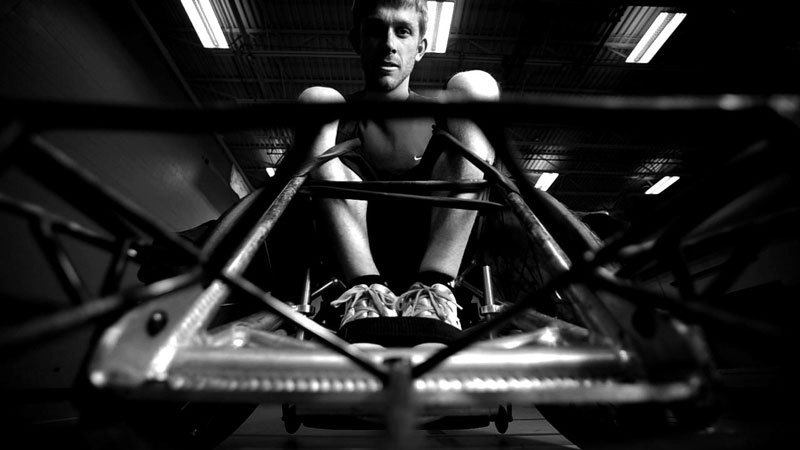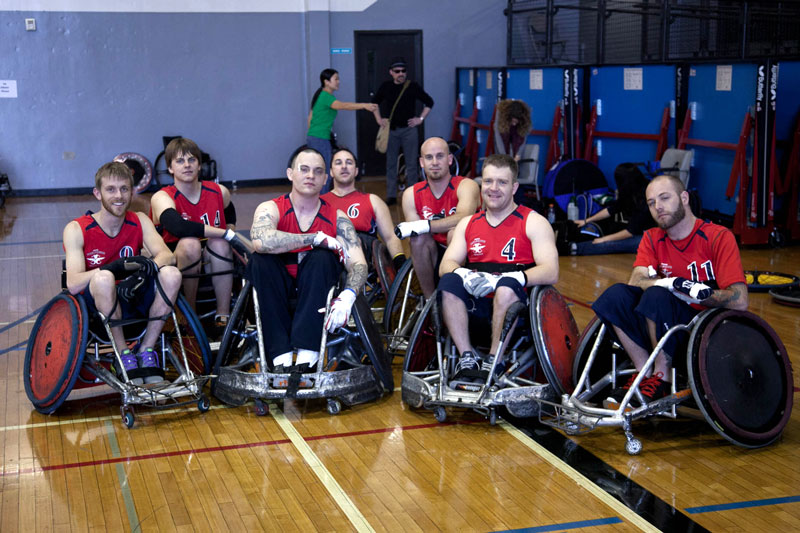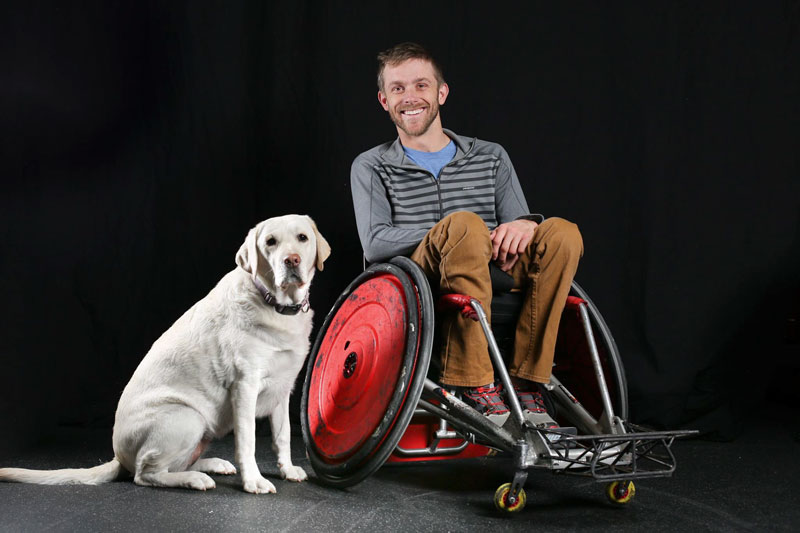Adaptive sports have changed my life, and not just in the inherent ways you may imagine.

I've been fortunate to try quite a few adaptive sports over years, but none have made a larger impact than wheelchair rugby. Rugby is so much more than just a sport to me. Don't get me wrong, there's definitely the typical sport aspects such as conditioning, practicing, training, and the inherent ups and downs of playing a team sport, but there's so much more that I initially didn't realize existed.
When I was first introduced to wheelchair rugby, I was still an inpatient at Craig Hospital in 2010. I had recently broken my neck and had heard about the sport where you get to play bumper cars in wheelchairs while tossing around a volleyball. I was 23 at the time. I had grown up playing sports and had always been pretty active. In my early days, I played team sports like soccer but seemed to gravitate more towards independent sports like cycling, swimming, and trail running. I didn't like the pressure and commitment that came with team sports, so I did my own thing. That being said, I knew my life had changed significantly, so why not give a team sport a try?

What I didn't realize when I first started playing rugby is there is so much more than just the 'sport' side of the team. Being around other quadriplegics, some who have been injured for more than 30 years, helped me gain perspective on what life could actually be like after my injury. Some have families with kids, some are master scuba divers, some work full-time, and some do not. Regardless, by trying an adaptive sport, I was exposed to a wealth of knowledge of what to expect now that I am a quadriplegic.
There are certain things that your therapist can't teach you when going through rehab. Personally, I had questions about how to use the bathroom and travel independently again, what to expect from a love life, how to deal with awkward situations, and so on. What I found through playing wheelchair rugby was that I could ask my fellow teammates any of these questions without any sort of prejudice. I quickly realized there was some sort of brotherhood that brought us all together by being quadriplegics, despite being vastly different otherwise.
One example that I remember vividly was when I first started traveling with my service dog, Bella. Given that I have limited dexterity, I wasn't sure how to fill a water bowl and then place the full bowl on the ground without spilling it everywhere. I asked one of my teammates who has a dog and he showed me the simple technique of filling water cups and then pouring the water into the bowl that is already placed on the ground. Though this may seem simple, it was something I never considered but now use every day.

Included with the team aspect of a sport like wheelchair rugby is the camaraderie of giving people a hard time (in a joking manner of course) but also having concrete evidence of improvement. The first practice always comes with mixed emotion. you usually aren't very good at the sport, feel incapable and insecure, but if you're willing to give it time and push through, you can quickly see how much stronger you become, both on and off the court. Before long, you're going out and hanging out with your teammates outside of rugby, watching how they open doors, use their wallets, design their house, fit in their chairs, cut up food, etc. These are the real life qualities that can't always be taught and instead need to be experienced.
This is why when I'm asked what I recommend to a newly injured patient, it's always to get out and hang out with people who have similar disabilities. Whether you choose adaptive team sports or more independent sports such as skiing, being around others who have already been through the same life changes is always beneficial.
Wheelchair rugby not only taught me a new sport, but helped me regain the confidence to live life independently again. I made many new lifelong friends, saw many new cities, learn from other people's experiences, and I am stronger both physically and mentally than I would have been without it.
With the new year, I challenge all of you to get out and try something new with other wheelers. While it doesn't have to be sport-related, I can only speak from my experience and I am certain that being around others will boost your skills, confidence, and ultimately your life.
About the Author
Kirk Williams is a C6-7 quadriplegic adventure photographer who, despite having paralysis from the chest down, refuses to sit still. Even with having limited dexterity, Kirk has created a drone photography business, Birds Eye Optics, that allows him an opportunity to travel, be outside, and do what he loves. Kirk also uses his website to blog, vlog, and explain how he's able to live a fulfilling adventurous life as a quadriplegic. From scuba diving in Mexico or playa dust at Burning Man, to traveling around Alaska in a homemade camper van, Kirk hopes that his skill set and storytelling will persuade others to get out and do more in this beautiful short life we're given.
Kirk's ride is a Quickie 7R.
Most of the stories here on Live Quickie were submitted by readers. Do you have a story to tell? We'd love to hear it. Submit your story here.